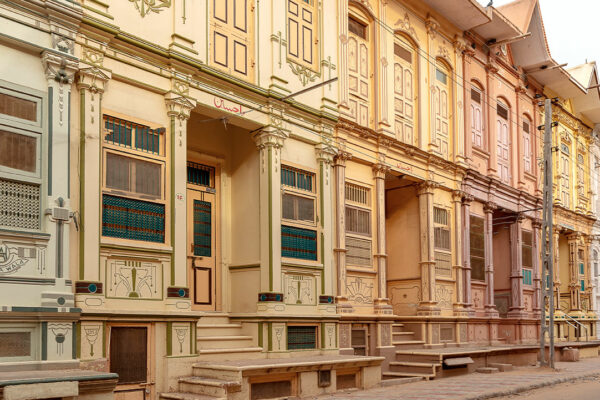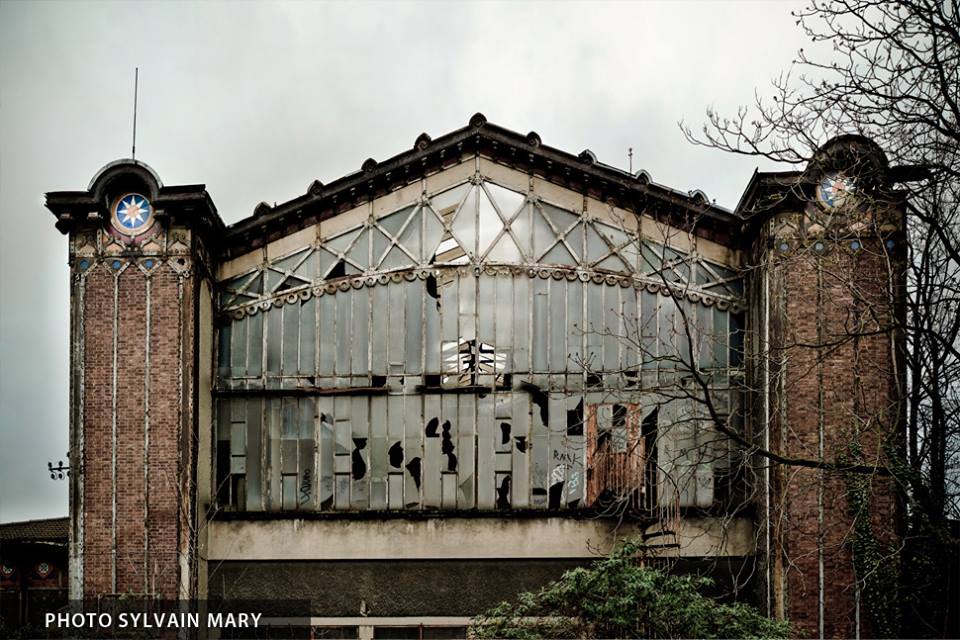
On the outskirts of Paris proper, at the back of a parking lot down a side street in a quiet residential neighbourhood of Clichy, there sits an old forgotten train station; crumbling at the edges, blackened in the corners and scarred on its facade.
But it wasn’t always sitting here, hidden away and withering in an inconspicuous corner of Paris. La Gare Lisch once had a very prestigious placement in the heart of the city of light, proudly standing at the foot of the iron lady of France, its trains rolling into the station giving passengers a front row seat to the gargantuan arches and pillars of the tallest structure in the world of its time– last stop, the Eiffel Tower.
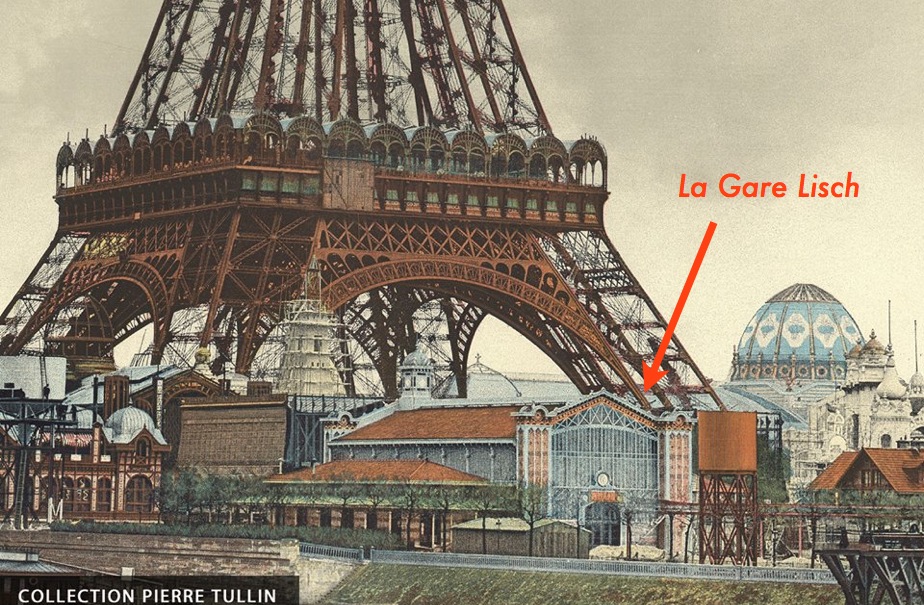
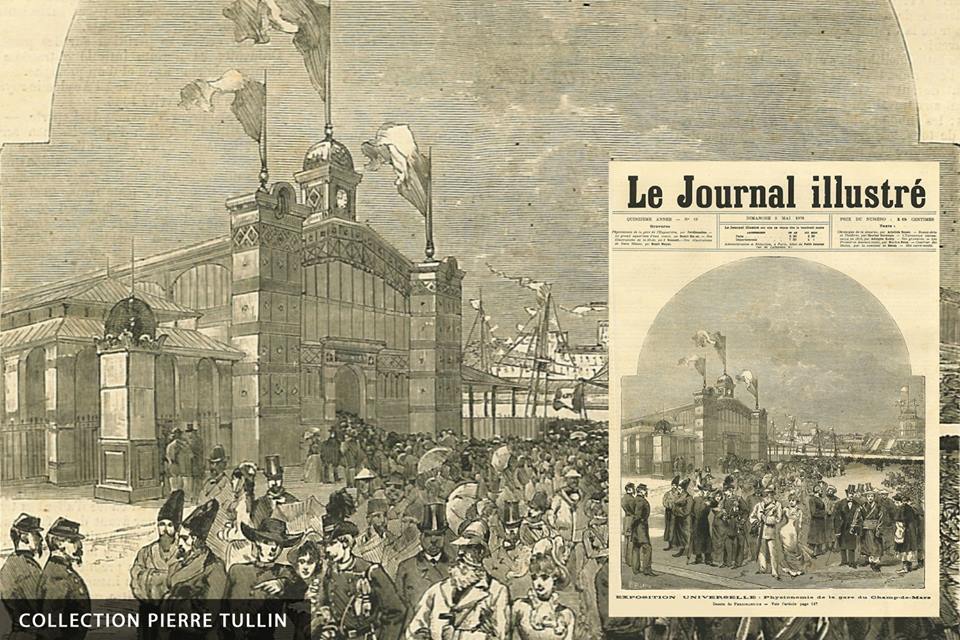
In March of 1878, a new Parisian train station was born. The Gare Lisch, named after its architect, Juste Lisch, who built several other stations in the city (including the currently standing Saint-Lazare station), was debuted for the World Fair of 1878, the third time Paris would be hosting the expo. The station served as a terminus for four stations connecting passengers commuting from the Western suburbs to Paris at a time when public transport consisted of little more than horse-drawn buggies.
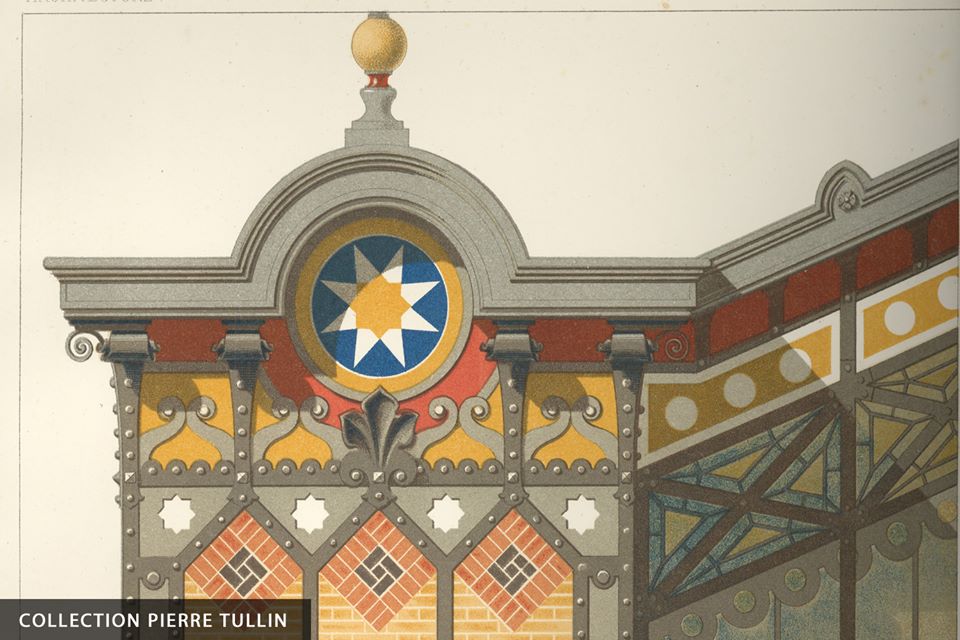
Equipped with four platforms (including one for welcoming boats on the Seine), decorated with colorful tiles and an intricate glass facade, the station was proudly flaunted in the press for the World Fair, praised as the station that helped build the expo, transporting the construction materials as well as the spectators that came to see it. Unlike most of the buildings constructed temporarily just for the world fair, Lisch was saved from the post-expo demolition and went on to play a pivotal role in the next expo again in 1889– the very same one that saw the Eiffel Tower go up.
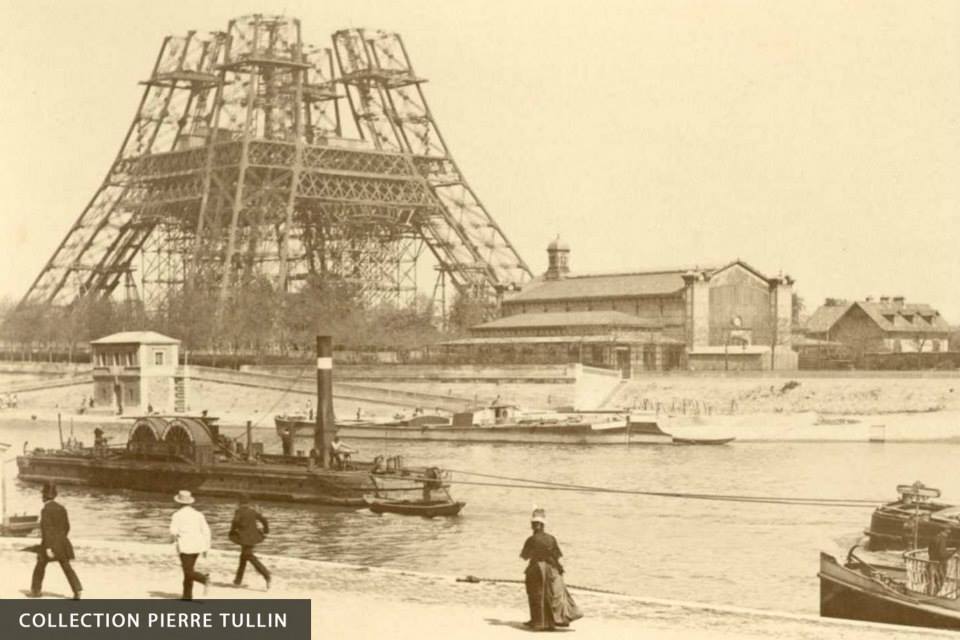
There’s Lisch to the right, looking on at the iron giant rising before it ↑. For the eight months of festivities in 1889, commonly regarded as the most impressive of the world fairs with the opening of the Eiffel Tower and its electric lights (the first time electricity was used at the expo), the Gare Lisch was once again connected to the fairground by railways as the main supplier of goods and construction materials for the exhibition. A lot of the materials used to build the Eiffel Tower would have arrived at Gare Lisch. More than 2 million travellers passed through its doors during the exposition and on June 10th 1889, more than 70,000 arrived at the station to see the Eiffel Tower.
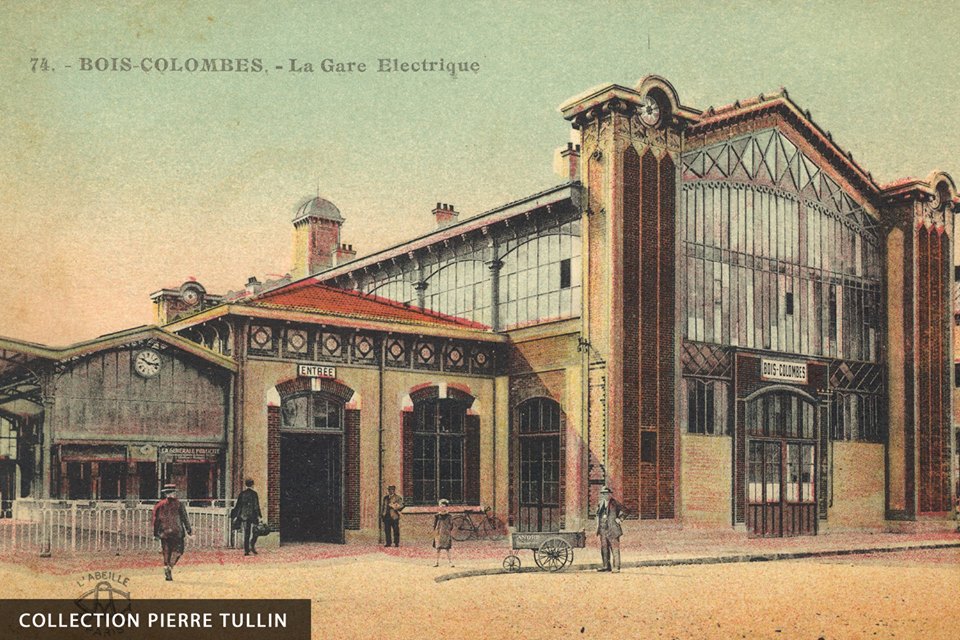
As the next Paris world expo approached however, the city was ready for a new station at the foot of the Eiffel tower, with plenty more platforms than Lisch could offer. She wasn’t demolished but was taken apart brick by brick in 1897, moved up the river and rebuilt in its new location, where it currently stands in Asnières-sur-Seine. Although situated in a less glamourous location, for a few years there it had a good run as a terminus station for the new electrical trains that were replacing steam engines and starting to run regularly through, to and from Paris. But as the railway network expanded, newer, bigger and better stations were built and Lisch once again lost its purpose in an ever-expanding city of the future.

Today, the station is a far cry from its heyday as one of Paris’ bustling travel portals…
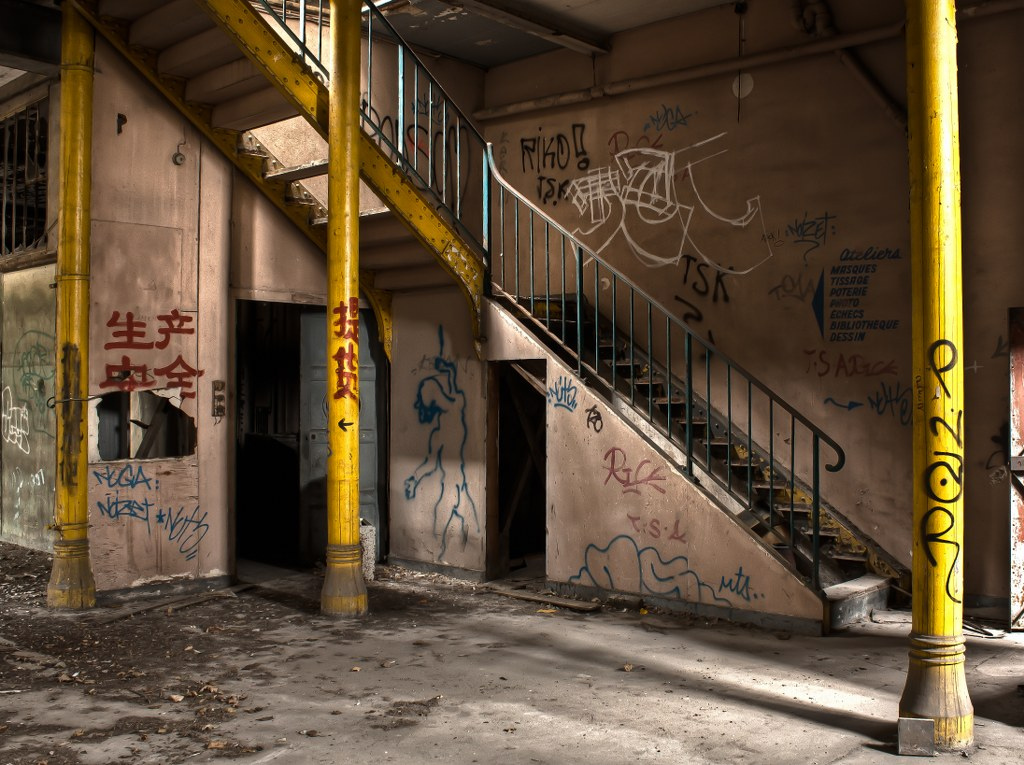
(c) Urbex photos by Ail’m Black
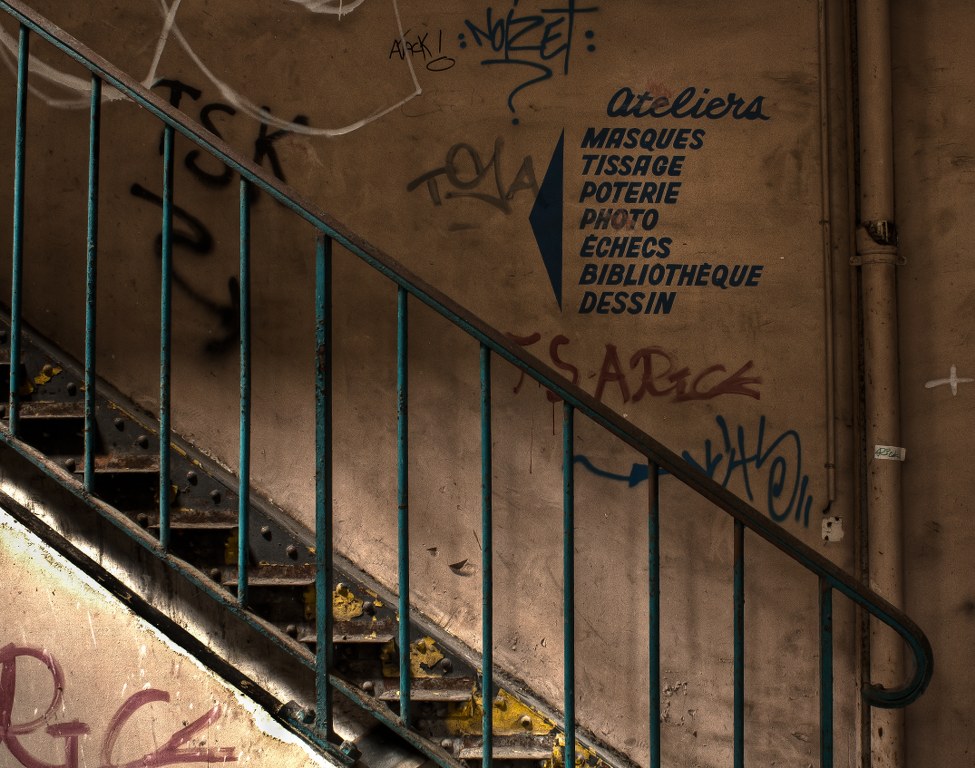
The building was converted in the 1930s into ateliers, which might explain those signs on the stairway pointing to various workshops. It’s last known use however was allegedly in 1972 when a National Circus School led by Annie Fratellinis set up shop there for a brief period.
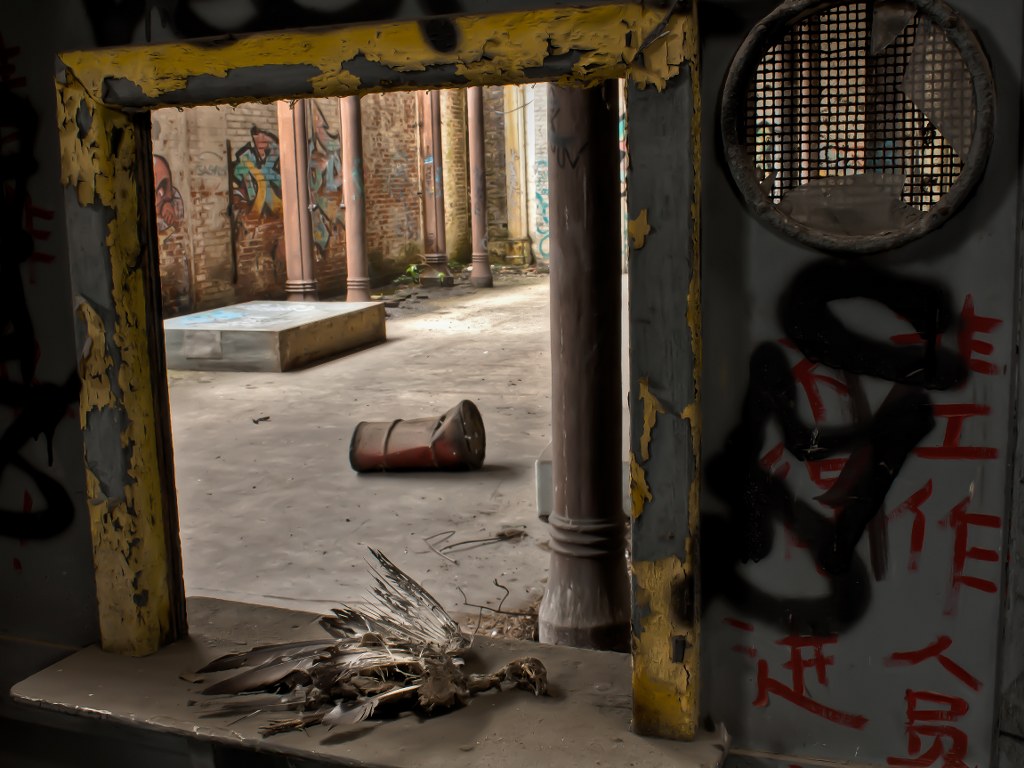
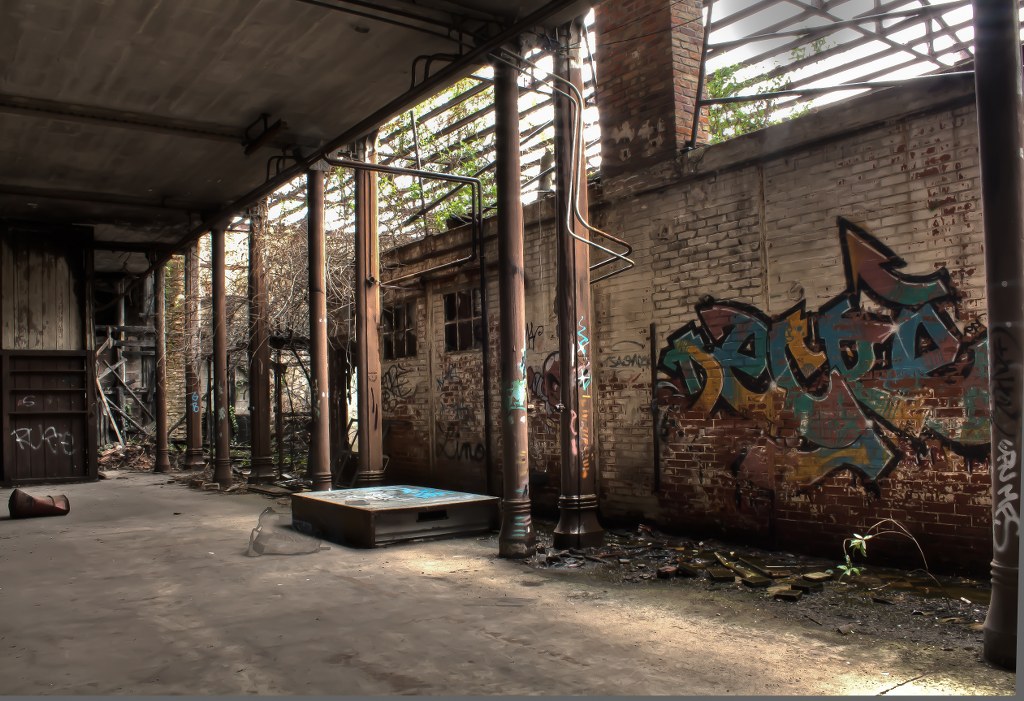
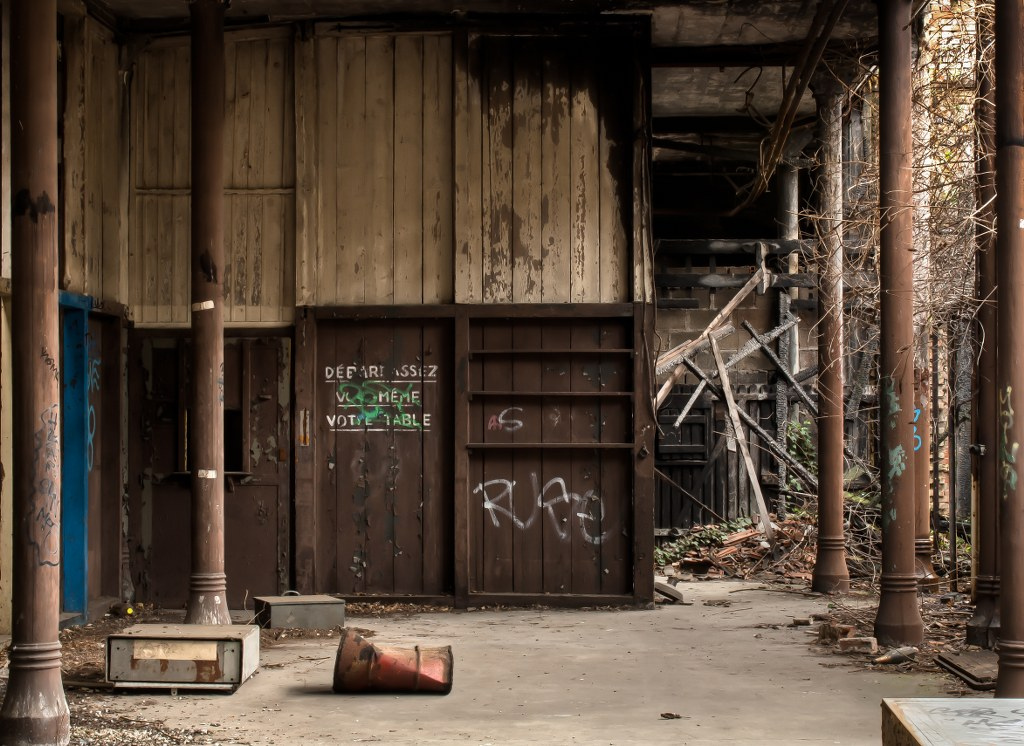
By 1983, left abandoned, Lisch was ready for demolition but thankfully saved at the eleventh hour by a campaign lead by the Parisian newspaper, Le Figaro, initiated by a local who lived nearby the historic building. It was added to Paris’ list of protected historic monuments in 1985. For a moment there, things were once again looking up for this old station of the Belle Époque…
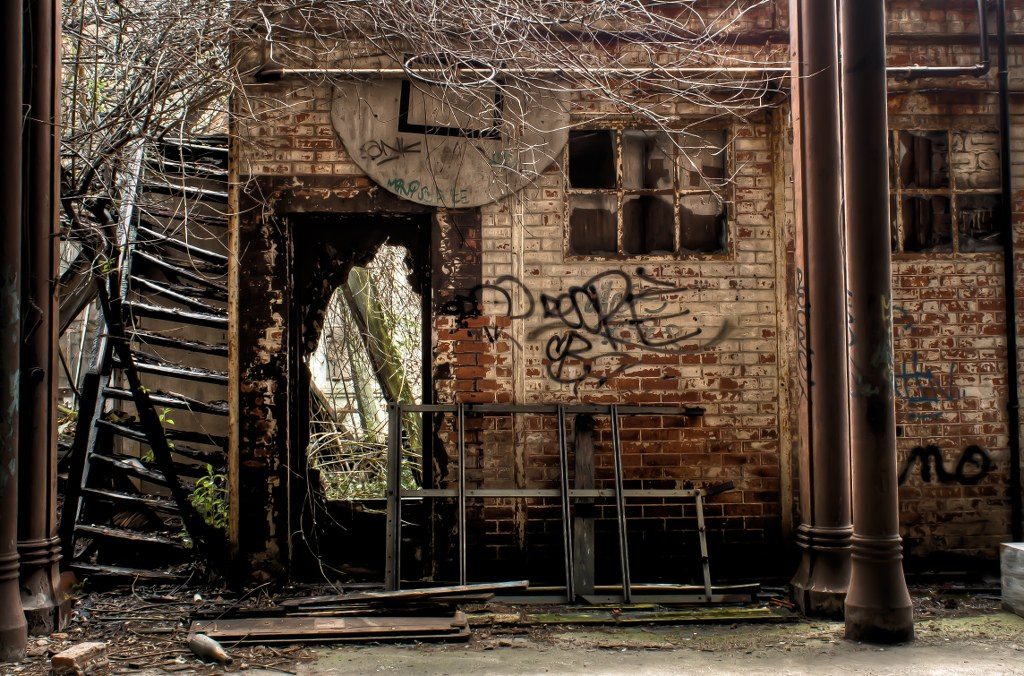
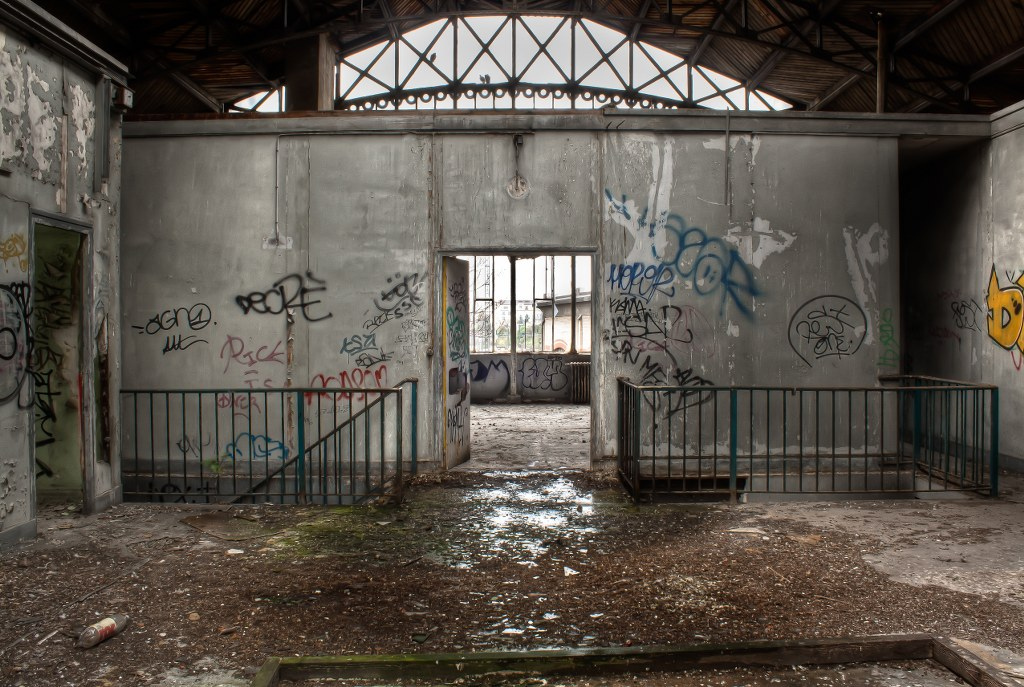
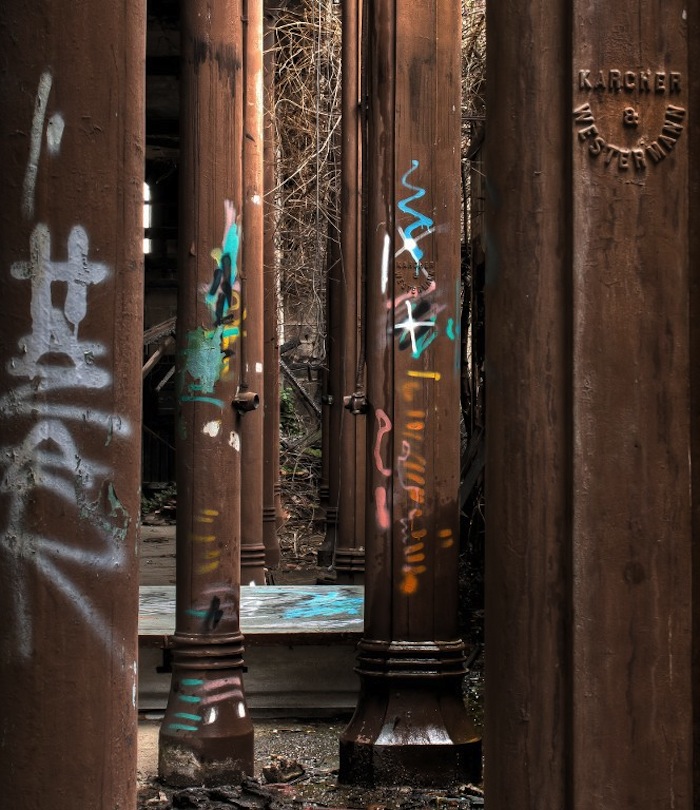
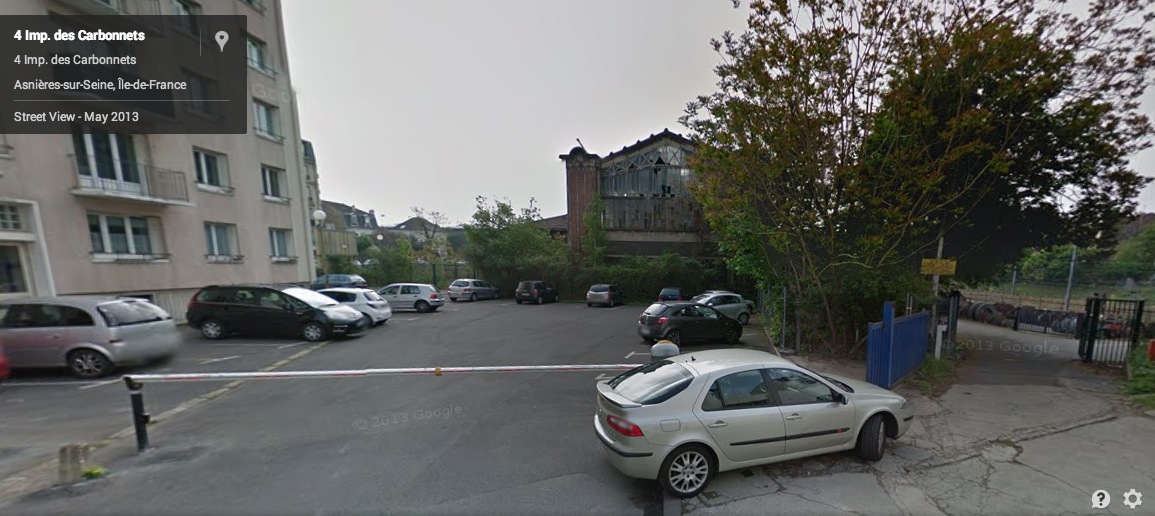
But twenty five years later and Gare Lisch is still a sorry-looking building, sitting lifelessly at the back of a dreary parking lot, a distant memory from its days alongside the Eiffel Tower, now the most-visited paid monument in the world…
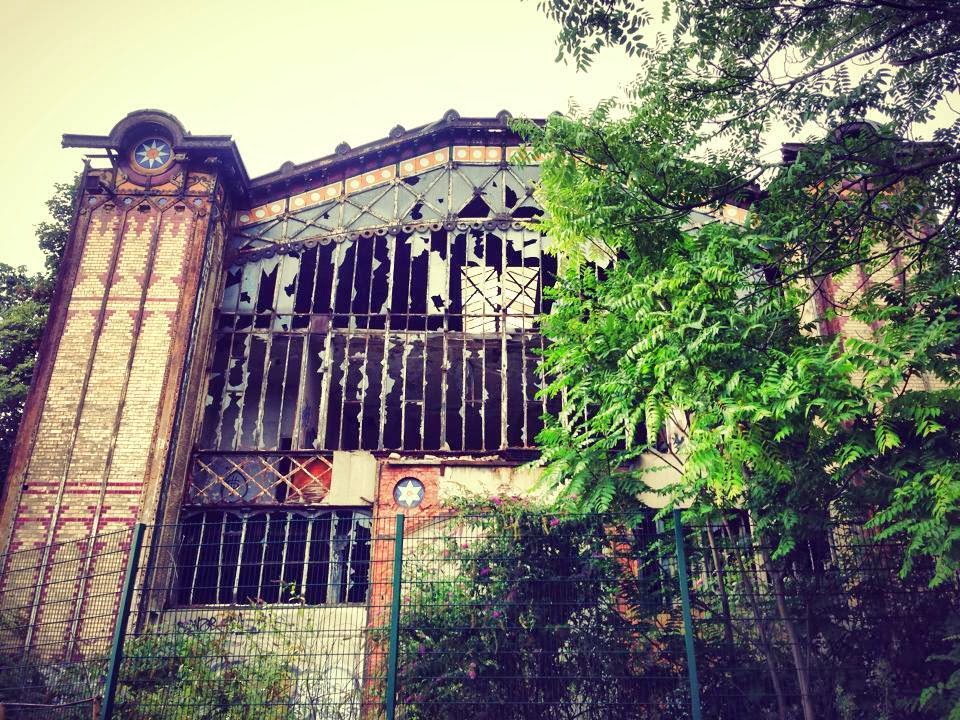
via VHYB
All attempts to revive the building (there were apparently quite a few) failed to get off the ground and in 2012, the building was declared entirely off-limits after a fire broke out, further damaging parts of the already decaying roof…
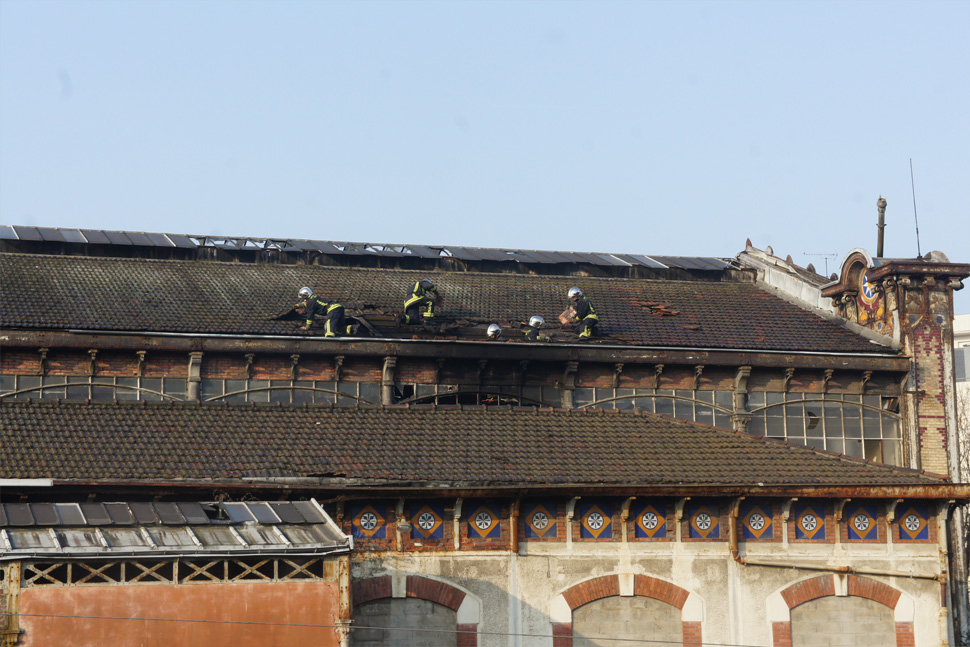
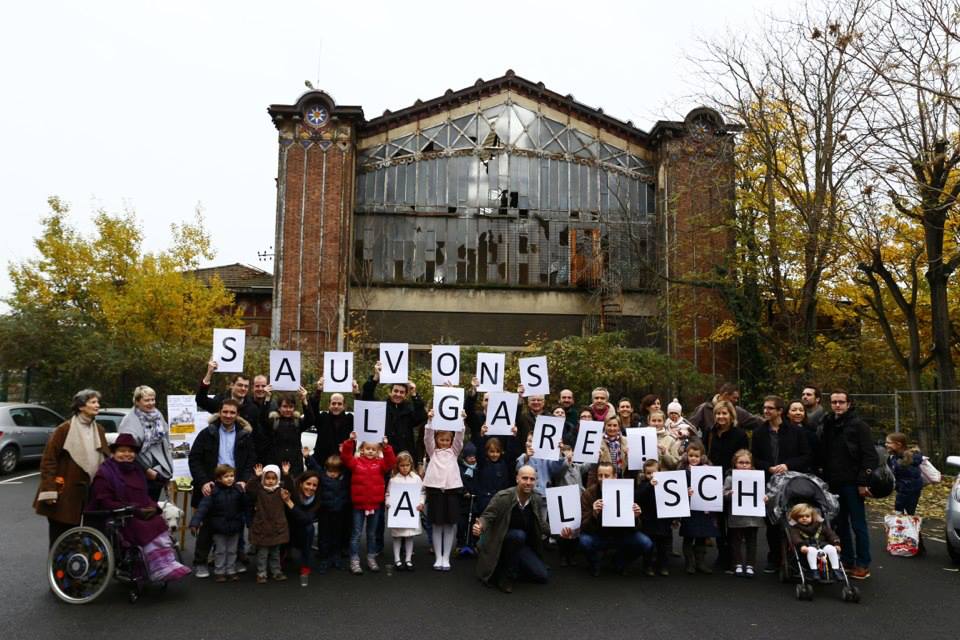
After countless failed attempts to save Lisch and find it a new purpose, perhaps 2014 might finally be the start of a new beginning for the forgotten station. Enter “Operation Renaissance“. Bringing together local residents and lovers of Parisian heritage, the organization is proposing to restore the station into what they’re calling a “Cité du Voyage”, a sort of cultural centre dedicated to travel, adventure and exploration. With 1000 square meters, they would hope to welcome the public with social activities, exhibitions, a library, a world travel boutique, conference centre, concert space, restaurant/ café and host festivals and all sorts of travel-related events.
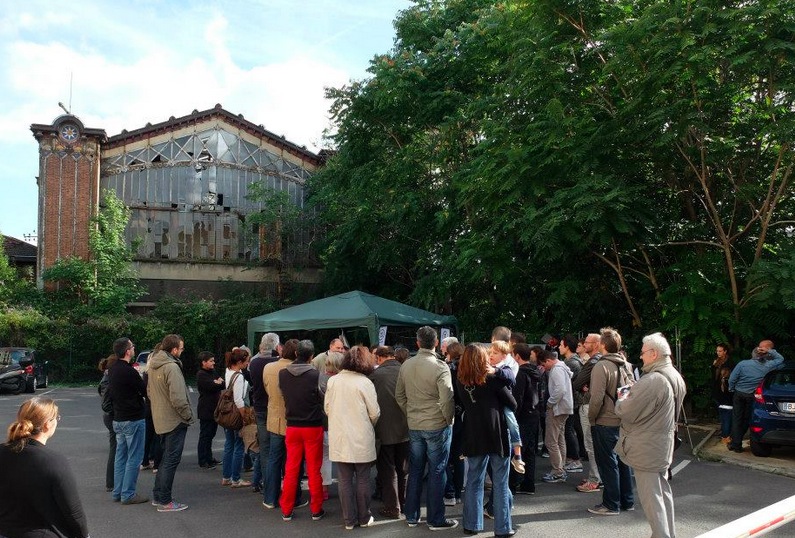
What makes these guys different and the likelihood of the project succeeding more credible this time round, is that they’re not waiting around for the government to help. Relying on their pretty savvy social networking skills and internet crowd-funding. They’ve already smashed their goal of €2000 to get the project on its feet, but looking at the state of the place, I’d say they’re going to need all the extras they can get.
Here’s to Gare Lisch seeing better days in the coming years. You can follow the progress of the project on Facebook here.
Photography thanks to Ail m’ Black and Operation Renaissance.










